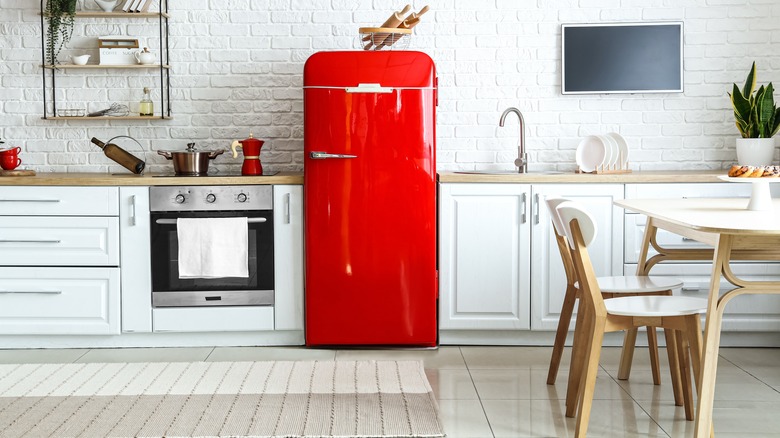Does An Eat-In Kitchen Add To A Home's Value? A Real Estate Expert Weighs In
Whether buying or selling a home, the value of that property is, of course, dependent on numerous factors. Opendoor shares that some of the biggest aspects that influence home value include the neighborhood, the price of recently sold properties, the location in regard to employment opportunities and quality of schools, and the home's size and usable space. Age, condition, upgrades, and other economic indicators also play a role in the value of a house.
Real estate agents can further share insights into how one home compares to another on a local level based on recent sales in the area. A pool in one neighborhood could add value, for example, but a finished basement might be more desirable in others. In an exclusive interview with House Digest, real estate agent and CEO of Emerald Group, Andrew Iremonger, shares his insight into the value of kitchens, specifically. "In general, a kitchen that is spacious and well-designed can be a major selling point for a home," he advises. That left us wondering whether an eat-in kitchen would make a difference in home value. Here's what Iremonger has to say.
An eat-in kitchen does add value to a home
Though it can be difficult to know which features are valued over others, Andrew Iremonger states that eat-in kitchens tend to be appreciated. "An eat-in kitchen can potentially add value to a home as it is a desirable feature for many buyers. It can make the kitchen feel more welcoming and functional, and can also serve as a gathering place for the family," he notes. "Additionally, an eat-in kitchen can help to create a more open and fluid floor plan, which is often preferred by buyers."
If your current kitchen offers enough room for a dining room set and perhaps a buffet, it's advisable to keep it as is. Changing the layout could stifle the previous spaciousness of the kitchen, making it less usable to larger families. That's especially true when considering that extra space makes it easier for people to move around. There are certainly some renovations that won't increase the value of a home, and putting up a wall and turning that eat-in space into an enclosed area may likely be one of them.
Considerations to keep in mind with eat-in kitchens
Every situation is a bit different, so the weight of an eat-in kitchen will not be equal across the board. Andrew Iremonger explains that there's more to understanding property value. "It's important to note that the value an eat-in kitchen adds to a home will depend on a variety of factors, including the overall design and layout of the kitchen, the overall condition of the home, and the local real estate market." If an eat-in kitchen is a unique feature within the neighborhood, that could help make a home more desirable. Otherwise, it might not.
Since there's so much difference from one home to another, Iremonger suggests seeking out trusted advice. "A professional home appraiser or local real estate agent can provide more specific guidance on the potential value an eat-in kitchen may add to a particular home," he shares. It will help to take even more features into consideration, such as aging appliances, design elements, and the timing of the sale.


